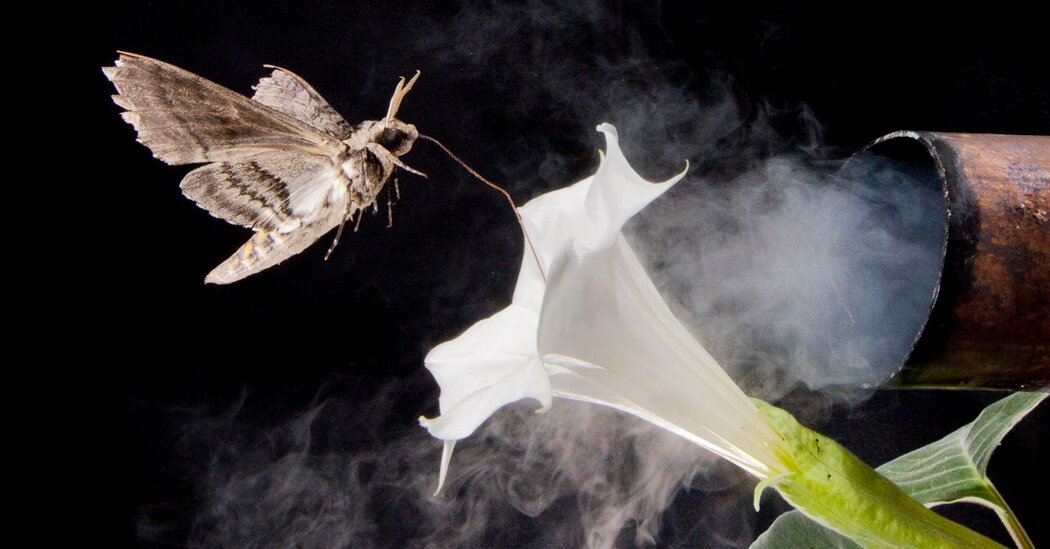
The damage that air pollution can do is wide-ranging and well-known: The chemicals produced by human activities can trap heat in the atmosphere, change the chemistry of the oceans and harm human health in myriad ways.
Now, a new study suggests that air pollution might also make flowers less attractive to pollinating insects. Compounds called nitrate radicals, which can be abundant in nighttime urban air, severely degrade the scent emitted by the pale evening primrose, reducing visits from pollinating hawk moths, researchers reported in Science on Thursday.
This sensory pollution could have far-reaching effects, interfering with plant reproduction and decreasing the production of fruits that feed many species, including humans. It could also threaten pollinators, which rely on flower nectar for sustenance and are already experiencing global declines.
“We worry a lot about exposure of humans to air pollution, but there’s a whole life system out there that’s also exposed to the same pollutants,” said Joel Thornton, an atmospheric chemist at the University of Washington and an author of the new study. “We’re really just uncovering how deep the impacts of air pollution go.”
The project was led by Dr. Thornton; his colleague Jeff Riffell, a sensory neurobiologist and ecologist at the University of Washington; and their joint doctoral student, Jeremy Chan, who is now a researcher at the University of Naples.
